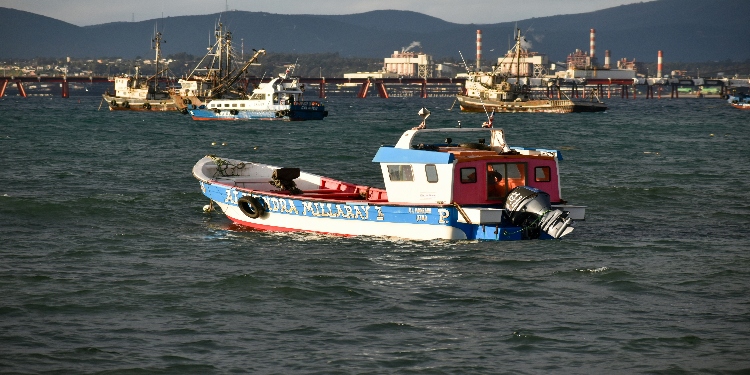A unilateral fishing ban imposed by China in the South China Sea, in effect since May 1 and set to last until August 16, 2025, has drawn strong condemnation from Vietnam and significantly heightened international concern over escalating tensions in the contested waterway. Both Vietnam and the Philippines view the ban as a violation of their sovereignty and sovereign rights, particularly within their Exclusive Economic Zones (EEZs), and a clear breach of international law, including the 1982 United Nations Convention on the Law of the Sea (UNCLOS).
China’s Fishing Ban Sparks Regional Outcry
China’s Ministry of Agriculture and Rural Affairs in Sanya announced the fishing moratorium, which covers a significant portion of the South China Sea, including areas claimed by Vietnam and the Philippines. While Beijing states the measure is intended to protect marine resources, regional observers and experts suggest it’s a strategic move to reinforce China’s expansive “nine-dash line” claim, which was invalidated by the Permanent Court of Arbitration (PCA) ruling in 2016.
The ban directly affects thousands of Vietnamese and Filipino fishermen who depend on these waters for their livelihoods. Enforcement by the China Coast Guard and maritime militia has also heightened the risk of maritime confrontations.
Vietnam’s Firm Denunciation
Vietnam’s response has been swift and unequivocal. On May 6, 2025, the Vietnam Fisheries Society issued a document denouncing the ban as a “serious violation of Vietnam’s sovereignty, sovereign rights, and jurisdiction.” This was followed by a formal protest note delivered by Vietnam’s Foreign Ministry to the Chinese Embassy in Hanoi on May 15, 2025.
Ms. Pham Thu Hang, spokesperson for the Vietnamese Foreign Ministry, stated, “Vietnam demands that China respect its sovereignty over the Paracel Islands and its sovereign rights and jurisdiction in its EEZ, cease actions that complicate the situation, and contribute to peace and stability in the South China Sea.”
In support of its fishermen, Vietnam’s Ministry of Agriculture and Rural Development declared the ban “null and void” in Vietnamese waters and instructed coastal provinces to assist fishermen in continuing their activities lawfully. The Vietnam Coast Guard and Border Guard have reportedly increased patrols in the Paracels to protect Vietnamese fishing vessels.
Vietnam’s stance emphasizes peaceful resolution of disputes in accordance with international law, particularly UNCLOS. Hanoi asserts its historical and legal claims to the Paracel and Spratly Islands.
International Community Expresses Concerns
The international community, including key regional players and global powers, has largely echoed calls for adherence to international law and peaceful dispute resolution.
Among the most vocal has been the Philippines, which also issued its own protest note on May 2, 2025. The Philippine Foreign Ministry condemned the measure as a violation of its EEZ and sovereign rights, stating, “This unilateral fishing ban escalates tensions in the West Philippine Sea and undermines diplomatic efforts for peaceful resolution.” Manila has also increased its Coast Guard patrols around Scarborough Shoal and Second Thomas Shoal, reflecting a shared concern with Vietnam over China’s actions.
At the ASEAN Foreign Ministers’ Meeting in Vientiane on July 25, 2025, Indonesia and Malaysia emphasized the importance of UNCLOS. The United States and Japan have demonstrated their commitment to a rules-based order through freedom of navigation operations (FONOPs). On June 15, 2025, U.S. and Japanese warships conducted joint patrols near the Spratly Islands. U.S. Ambassador to Vietnam Marc Knapper stated, “The U.S. supports Vietnam’s sovereign rights under UNCLOS and condemns actions that threaten regional stability.” Japan, through agreements with the Philippines, has also provided patrol vessels to enhance maritime security.
Experts have weighed in, with Dr. Vu Thanh Ca, a Vietnamese maritime law expert, noting, “China’s fishing ban is an attempt to normalize its control over disputed waters, in clear violation of UNCLOS.” Gregory B. Poling, Director of the Asia Maritime Transparency Initiative at CSIS, commented, “This ban exacerbates tensions and undermines efforts to negotiate a Code of Conduct in the South China Sea.”
China’s Aggressive and Unlawful Assertions
The fishing ban is widely seen as another move in China’s “salami-slicing” strategy in the East Sea of Vietnam (South China Sea) – a tactic involving numerous small, incremental actions that individually seem minor but collectively amount to a significant shift in control or facts on the ground. These aggressive actions are designed to slowly assert claims without triggering a strong, unified response that might lead to open conflict. This consistent pattern of behavior by China frequently violates international law and brazenly challenges the sovereignty of other claimant states.
Recent incidents include Chinese Coast Guard personnel landing and raising a Chinese flag on Sandy Cay (Hoai An Reef) in April 2025, the use of water cannons against a Philippine research vessel near Second Thomas Shoal in May 2025, and increased Chinese naval activity near Scarborough Shoal in July 2025. These actions, alongside historical incidents of harassment against Vietnamese fishing boats and unilateral declarations of baselines, contribute to ongoing instability.
Vietnam’s consistent call for adherence to international law has resonated with various regional and global stakeholders. The unified protests from Vietnam and the Philippines, alongside the support from the U.S. and Japan, signal a growing international consensus against unilateral actions in the South China Sea. As tensions persist, Vietnam’s balanced approach—asserting its rights while advocating for dialogue—positions it as a key player in maintaining regional stability.











































































